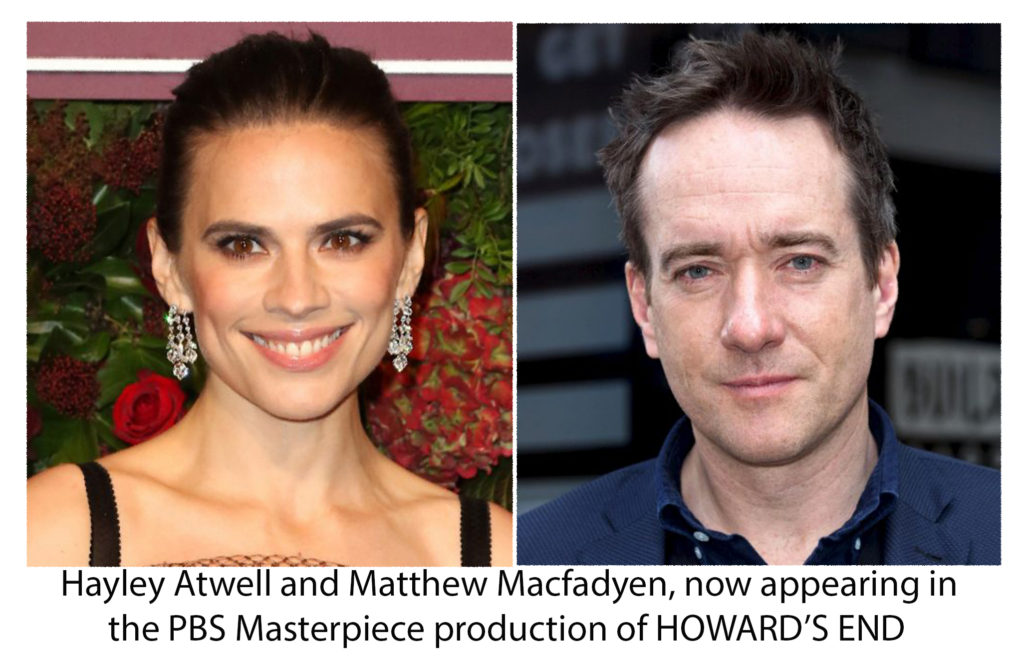Dear Friends,
Watching the re-release of the recent Howard’s End on PBS Masterpiece, I’m reminded of various aspects of building a story. E M Forster was masterful, of course, which is why most of his novels have been translated to the screen (Howard’s End, A Passage to India, A Room with a View, Maurice, Where Angels Fear to Tread). Those pictures certainly kept Helena Bonham Carter busy, by the way.
Comparing the recent four-part version of Howard’s End on TV to the 1992 film version—both of them superbly acted—I’m struck by the major difference in the two. It’s something I noticed the first time I read the book, when I was twenty-one. And the creators of the pre-pandemic two-part Broadway marathon The Inheritance also grasped the concept. And that is—drum roll—Henry Wilcox must be deadly attractive.
For all his buttoned-down, conservative, business-like exterior, Henry is also intensely endearing. The first Mrs. Wilcox saw that, of course. She didn’t marry Henry and bear him three children simply because it was the polite thing to do. Henry attracts women of substance who accept him for who he is. Margaret Schlegel is no man’s fool, and she’s incapable of committing to anything like a marriage of convenience. Oh, no. She gives Henry her heart—because he earns it. Because he has a heart of his own, as much as he has tried to hide it through the years.
In the 1992 movie, Anthony Hopkins, fine as his work always is, didn’t quite exude the sex appeal Henry needs to have. In my opinion. Matthew Macfadyen, on PBS, totally gets it. His Henry Wilcox is as stuffy as you please, while at the same time he makes us wonder what he’d be like if we got him out of his tweeds and into bed. Without that, there’s no story! And watching Macfadyen interact with Hayley Atwell (as Margaret) and the rest of the fine cast is a sheer joy.
I’ll leave my review of Howard’s End at that, for now. But I think I’ve always understood the importance of physical passion in my stories. Without it, they would crumble under the weight of good intensions and clever dialogue. Forster understood it. As did Shakespeare, Austen, Morrison, Tolstoy, Baldwin. All the greats. Anyway, I’ll share some other lessons learned about constructing a story in future posts. Thanks for joining me on this journey!
Bruce




1 Comment
Walter · February 13, 2022 at 4:48 pm
Brilliant critique! I think you’re spot on, as you always are in your novels. Happy Valentine’s Day!